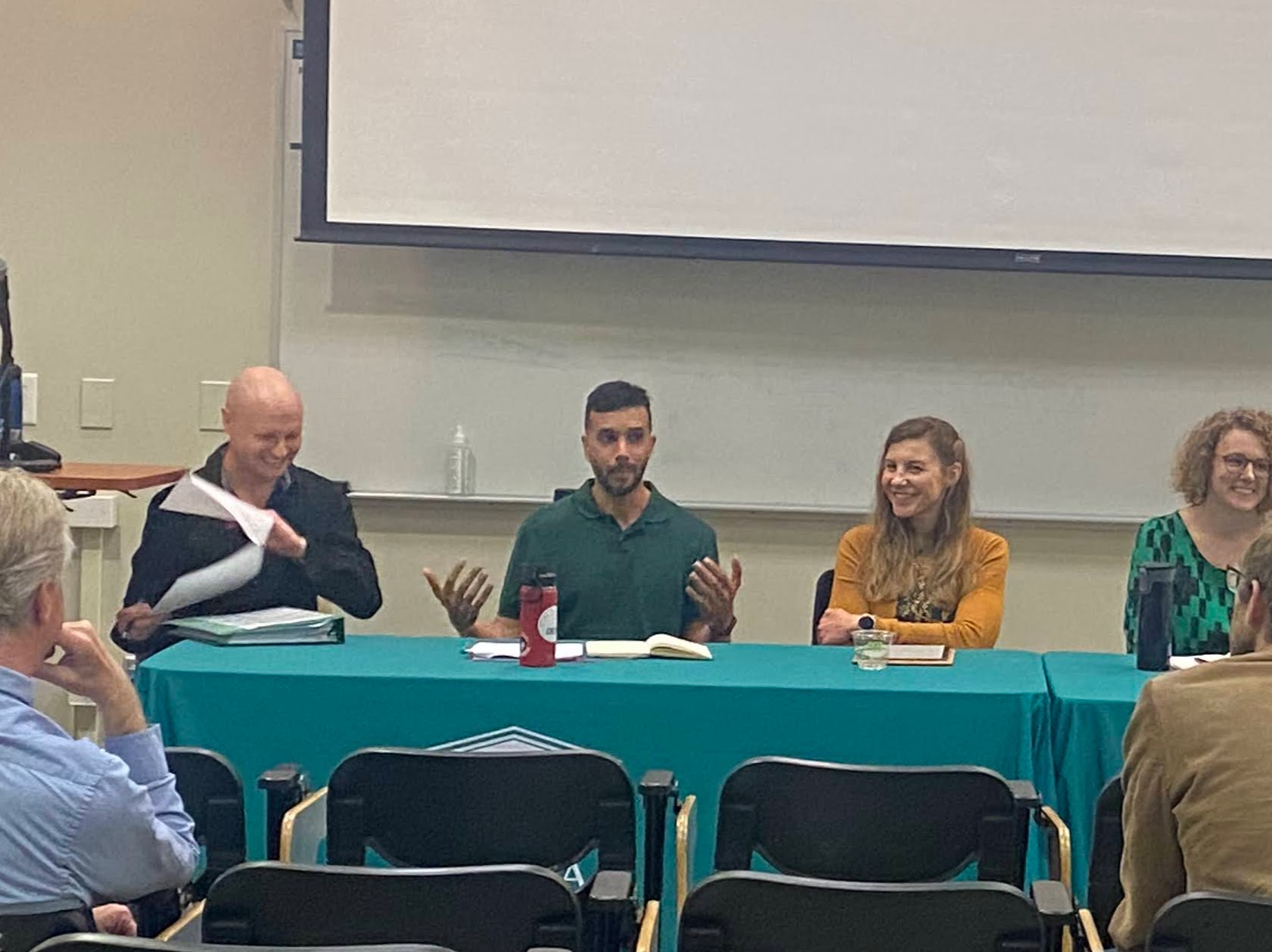The sociologist argued that translating AI's efficiency gains into better lives for most people will hinge on attention to social context and regulation, not solely technical challenges.
Associate Professor of Sociology Raj Ghoshal was an invited panelist at “Exploring Artificial Intelligence and Human Life,” a symposium hosted by the University of North Carolina-Wilmington on April 19, 2024.

The event featured perspectives from computer scientists, geographers, sociologists and philosophers from the U.S. and Canada. Topics addressed included positive and negative impacts of AI on climate change, work organization, social capital and inequality.
In his remarks, Ghoshal suggested that AI can generate efficiency gains but that absent careful regulation, these benefits risk being too narrowly concentrated among the already well-off and powerful. Ghoshal encouraged audience members to “follow the money” — that is, to remember that AI tools are being developed and promoted mainly by powerful, profit-oriented businesses. These tools therefore have significant positive power in cases when profit and overall social well-being coincide, but potential for harm when social good runs contrary to the economic interests of their developers.
Ghoshal gave two examples in which AI-fueled efficiency gains might appear to yield positive results in narrow contexts yet have mixed impacts from a broader perspective. In the first, AI tools might help police better address street crime, yet reduce attention to harms such as white-collar crime more often caused by economically and politically powerful people. In the second, use of AI in medical contexts seemingly helps address U.S. physician scarcity, but locks in a system in which medical associations have used political influence to restrict the supply of doctors and maximize profits, to the detriment of patients.
Ultimately, Ghoshal argued that AI’s positive potentials will be realized only if regulators and citizens devote significant attention to social context, not just technical capabilities.



